The First Fully Customizable All-In-One Logistics CRM & ERP
Efficiently manage communications, sales, supply chain, inventory and more- all in one place with a Logistics CRM that delivers.

How Does a Logistics CRM & ERP Enhance Your Process?
Download Your Free White Paper Today!
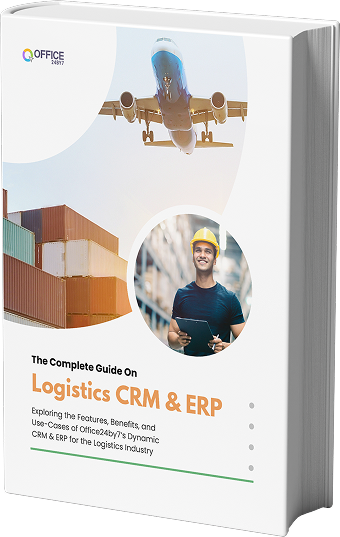
The Ultimate CRM for All Air, Water & Land Logistics Business
Automate shipment tracking, customer queries, and delivery scheduling for improved efficiency and satisfaction.
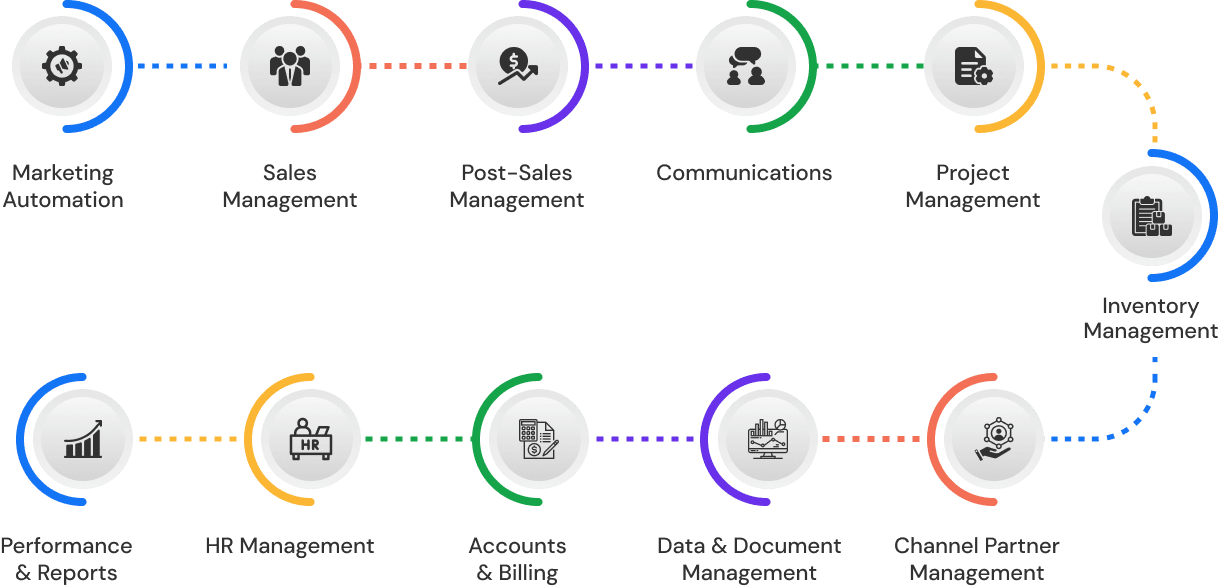
Marketing Automation
Office24by7 logistics CRM enables you to set up extensive marketing campaigns to build brand awareness, attract new customers, generate qualified leads, and showcase your services and its benefits. It helps to automatically capture inquiries from multiple channels such as inbound and outbound campaigns. Once captured, the CRM helps you to categorize leads based on industry, shipment volume, and service needs to ensure personalized engagement. The CRM continuously monitors campaign performance, helping businesses refine their strategies and maximize conversions.
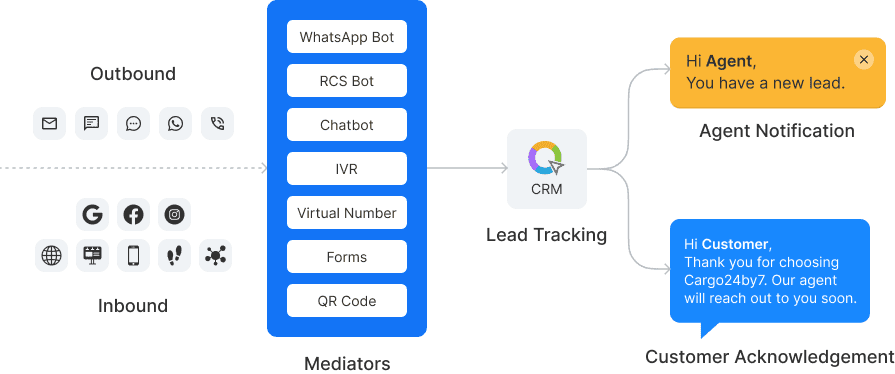
Pre-Sales Management
Once leads are captured, the pre-sales process ensures they are effectively managed and converted into customers. The CRM allows you to qualify leads based on shipping frequency, volume, and urgency, automatically distributing them to sales representatives based on workload, expertise, or geographic location. Sales teams can then reach out to customers through omnichannel integrations and other cloud telephony services which are inbuilt to the CRM so that they don't have to juggle between softwares or tools. This also ensures that all interactions are properly documented to support all upcoming sales requirements. Automated proposals and quotations are generated, allowing for quick negotiations and revisions. Once terms are agreed upon, contracts and service-level agreements (SLAs) are digitally signed and securely stored within the CRM data management module, streamlining the client onboarding process.
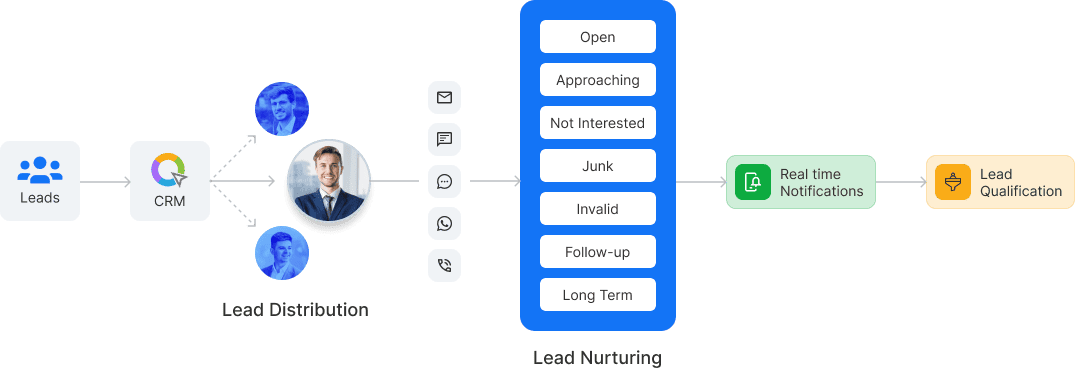
Sales Management
With contracts finalized, the logistics sales process moves into execution. Orders are processed within the CRM, confirming shipment details and generating waybills and invoices. The system allows you to optimize freight planning by suggesting the best routes and vehicles based on availability and efficiency. Dispatch schedules are synchronized automatically, sending alerts and notifications to transport teams about upcoming shipments. Customers receive real-time tracking updates, ensuring complete visibility throughout the shipping process. The CRM also helps to identify upselling and cross-selling opportunities by analyzing past shipment data and suggesting complementary services such as warehousing, customs clearance, or insurance.

Communications
Effective communication is crucial in logistics operations, both internally and externally. The CRM centralizes all interactions, ensuring smooth coordination between sales, operations, and warehouse teams. Customers stay informed with automated notifications about shipment status, billing, and service updates. This helps to reduce return orders which can cause a great inconvenience to the logistics. Integrated communication channels, including WhatsApp, Google RCS, SMS, emails and voice calls, allow support teams to resolve client inquiries promptly. Feedback is also collected after each transaction, enabling businesses to improve their service offerings and build long-term customer relationships.

Up-sell and Cross-sell Management
For upselling, a CRM enables logistics companies to identify clients who might benefit from premium services. By analyzing shipping patterns, delivery times, and customer feedback stored within the CRM, sales teams can pinpoint clients for whom expedited shipping, white-glove delivery, or dedicated support could significantly improve their experience. The CRM can also be used to track the success of upselling efforts, allowing businesses to refine their strategies and target the most receptive clients. Furthermore, the CRM can automate the process of offering upgrades, ensuring that clients are aware of the available options and their associated benefits. Ultimately, a CRM empowers logistics businesses to personalize their interactions, understand client needs, and proactively offer services that enhance value and drive revenue growth through both cross-selling and upselling.
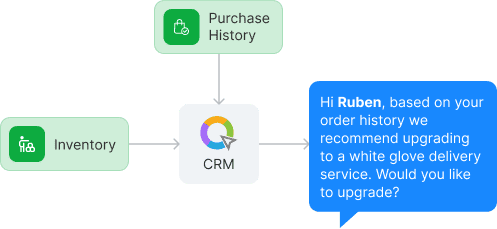
Shipment & Order Management
The logistics CRM streamlines shipment execution by automating key processes. Orders are validated, and necessary documents such as waybills and invoices are stored. Warehouse teams are notified for cargo handling, and transport assignments are optimized based on route efficiency for all services (FTL, LTL, Intermodal, FCL, LCL, Air). Drivers receive dispatch schedules and navigation routes, ensuring optimized pickups and deliveries. Real-time tracking provides clients with shipment updates, while proof-of-delivery confirmations are automatically recorded in the CRM for future reference.
Inventory & Fleet Management
Managing fleet and inventory effectively is essential for logistics businesses. The CRM enables real-time tracking of vehicle availability, maintenance schedules, and fuel consumption. Warehouse inventory levels, including essential spare parts and packaging materials, are continuously monitored to ensure seamless operations. Automated maintenance reminders help reduce vehicle downtime, while automated compliance reminders ensure all transport assets meet regulatory standards. Expense tracking for fleet operations provides businesses with better financial control and resource allocation.
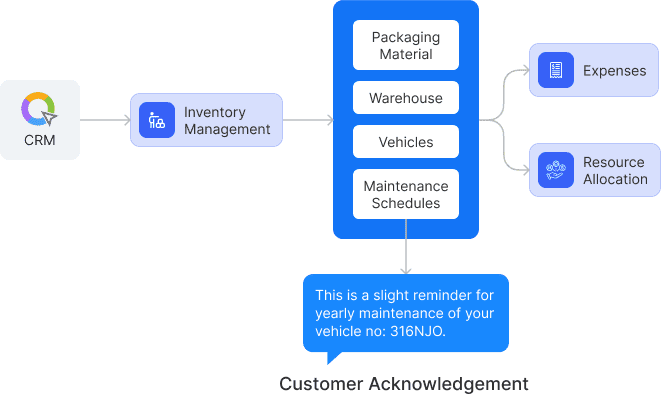
Supplier & Vendor Management
A logistics CRM simplifies partner and vendor management by centralizing all supplier and carrier information. New vendors are identified, qualified, and on-boarded digitally, while performance tracking ensures that these transport partners meet delivery timelines and service quality standards. You can manage quotes, invoices and commissions within the CRM to facilitate smooth financial workflows. Businesses can also collaborate with key partners on special agreements, discounts, or promotional campaigns to optimize and boost supply chain efficiency.

Data & Document Management
Managing large volumes of data and documents is crucial in logistics. The CRM provides secure cloud storage for invoices, contracts, customs documentation, and tax filings. Role-based access controls protect sensitive business data, ensuring only authorized personnel can view or modify important records. Quick features to retrieve any data allows employees to access and share critical documents instantly.
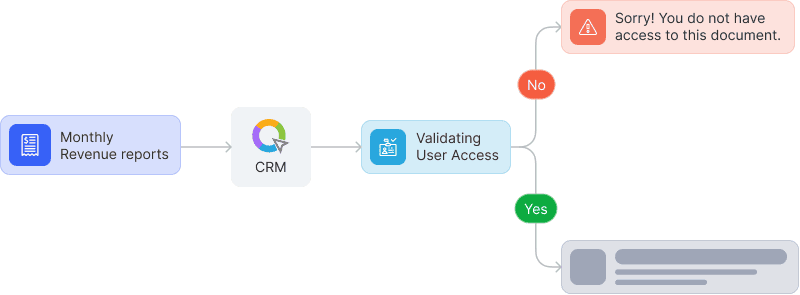
Accounts & Billing Management
A logistics CRM streamlines financial workflows, ensuring timely and accurate transactions. The system allows you to share invoices based on shipment details and additional services rendered. Payment tracking tools help teams to monitor outstanding receivables, sending automated reminders for due payments. You can also track fuel costs, fleet maintenance costs, and warehousing charges so that every financial aspect of your logistics business is documented. This helps logistics businesses ensure that they remain financially hygienic.

HR Management
Streamline employee-related processes, improving coordination, and enhancing overall efficiency. Easily track employee details, including roles, responsibilities, and performance metrics, providing a centralized platform for HR teams to manage personnel information. Office24by7 logistics CRM simplifies task allocation by helping managers assign roles and track employee progress in real time, ensuring clear communication and accountability. It also integrates with other HR systems for smooth payroll processing, attendance tracking, and performance evaluations. Additionally, the CRM supports recruitment by managing candidate data, interview schedules, and hiring workflows, ensuring that HR teams can quickly and effectively onboard new talent. When employees exit the company, the system handles clearances and final settlements, maintaining smooth workforce transitions.

Performance & Reports
Enhance logistics performance tracking with comprehensive analytics tools that monitor key performance indicators (KPIs) across supply chain operations, fleet management, and warehouse efficiency. Get real-time tracking of shipment deliveries, order fulfillment rates, fuel consumption, and transportation costs, providing a clear picture of operational efficiency. The CRM generates detailed reports on fleet utilization, route optimization, driver productivity, and customer satisfaction, helping managers identify strengths and address inefficiencies. Customizable dashboards provide instant insights into logistics workflows, shipment bottlenecks, and cost-saving opportunities, while automated reporting ensures timely and accurate performance evaluations.
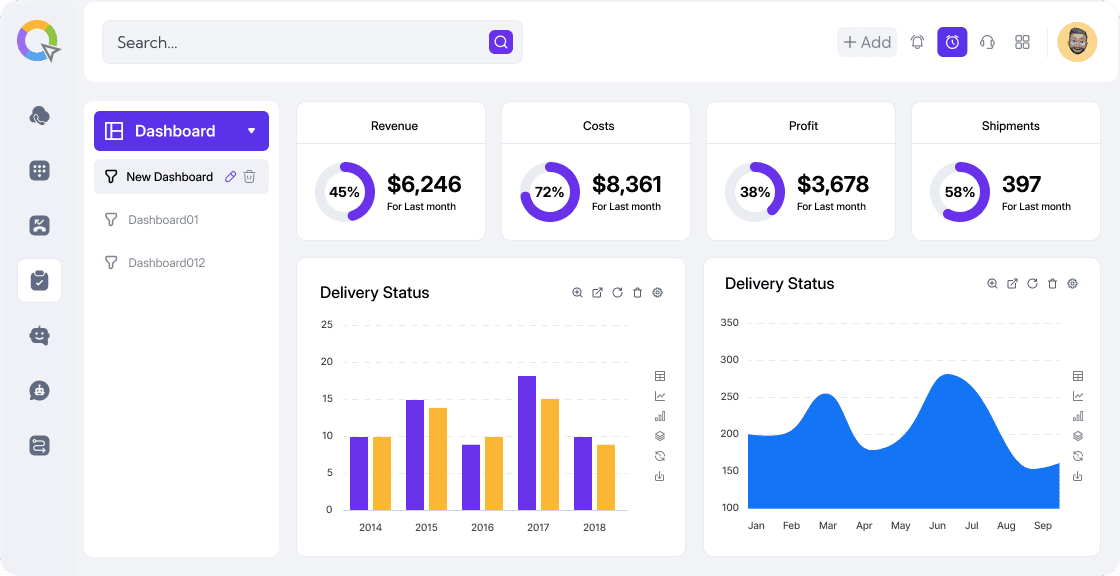
Office24by7 Integrations for Logistics CRM Software
A large library of integrations that are specifically tuned to meet all logistics businesses.
Interested in knowing more about Office24by7’s capabilities?
Get in touch with us!
Enquire Now
Features That Set Office24by7 Logistics CRM Apart
Free CRM Software
Enjoy the best CRM tool that is available at no cost, offering core CRM functionalities for managing leads and deals.
Omni-channel
Integrate multiple channels (e.g., voice, SMS, WhatsApp, RCS, email) for a consistent customer experience with our unified communication platform.
Dashboards
Visual representations of key performance metrics and real-time data for monitoring sales and customer interactions.
Archives
Save and access historical data, documents, and communications for future reference.
Integrated Cloud Telephony
Experience seamless communication through voice calls to connect with potential buyers through in-built cloud telephony.
Calendars
Scheduling appointments, meetings, and reminders to track important dates and events related to sales and leads.
Filters
Sort and search leads, deals, and other CRM data based on specific criteria using customizable filters.
Add-ons
Extend the functionality of your CRM by integrating additional features or extensions.
Email Marketing
Get access to tools for creating and sending bulk emails to leads and clients, along with tracking email campaign performance.
Tasks
Create and complete tasks related to sales and other activities. Collaborate with internal teams by assigning, tracking, and monitoring tasks.
Views
Save the filters as views to easily access the data later with a simple click.
Advanced User Privileges
Ensure appropriate permissions and security within the CRM system with customizable access rights and roles for users.
Quotes & Invoices
Generate customized quotes and invoices for transactions with clients or customers.
Reports
Generate detailed reports on sales performance, lead conversions, financial transactions, and other CRM activities.
Lists
Save the filter view as a list to execute any action or campaign on the records. Use static lists to maintain fixed records, and dynamic lists to automatically update entries as changes occur in the original data.
API Integrations
Connect and integrate the CRM with third-party tools, software, and services using APIs.
Why Get a Logistics CRM Software?
Read more about why CRM software is becoming a critical requirement for logistics businesses from top-rated resources.
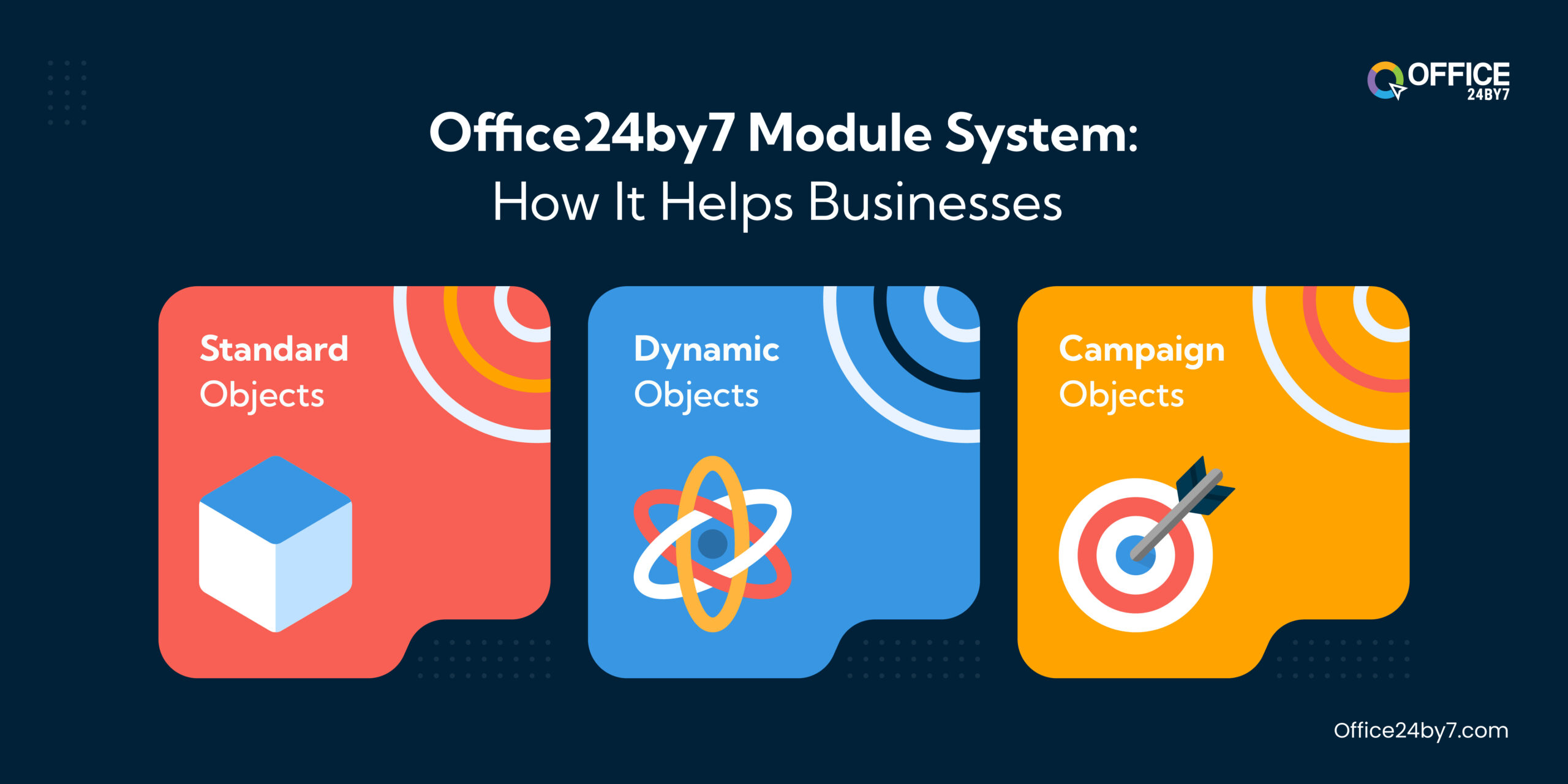
How Can You Create A Single Software For Your Business With Office24by7 Modular System?
The new modular system in Office24by7 provides extensive customization capabilities that allows users to create their own products using various modules. Learn more about how this helps your business here.

Know Everything About Sales CRM and Why Your Business Needs It.
What is a sales CRM? Why is it important for businesses? What are its features and benefits? Let me give you 10 reasons why your salespeople should get CRM software. Learn all about sales CRM software here.

How Does Cloud Telephony and CRM Integration Benefit Business?
No more customer service juggling! Cloud telephony and CRM integration unlock a new era of responsiveness, placing you at the helm of exceptional customer experiences. Learn all about it here!
Try Office24by7 for free with a 30-day trial
Ready to start? Worried about migration? Book a free consultation today!



